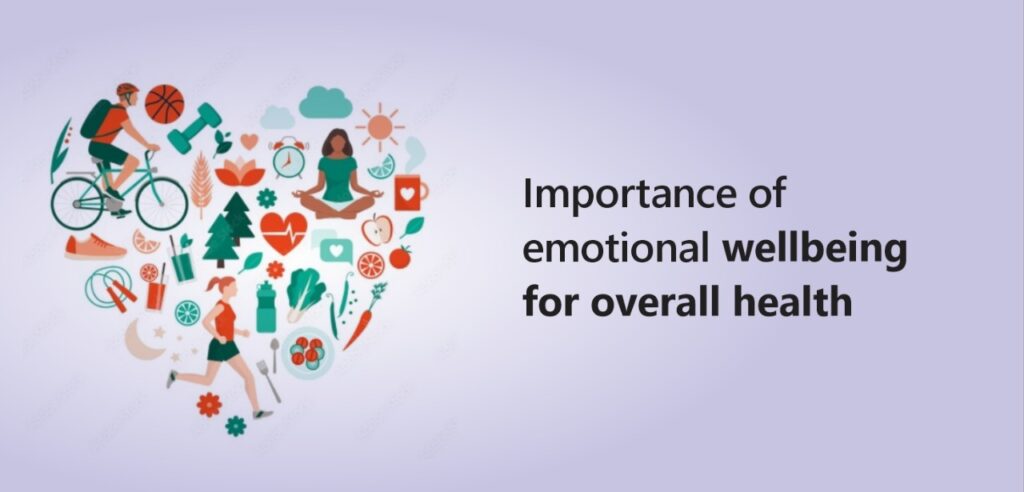
Maintaining Personal Boundaries
Setting and upholding personal boundaries is crucial to your wellbeing in the connected world of today. By deciding to keep some parts of your life private, you set limits that safeguard your relationships, time, and personal area. This deliberate action gives you the power to manage the information that is shared about you, protecting your privacy and averting any potential invasions. Establishing boundaries gives you the ability to handle relationships and social situations with confidence and clarity.

It is a sign of self-respect and self-care. It also promotes healthier relationships by setting boundaries and expectations that are unambiguous. Setting boundaries first helps you strike a good balance between privacy and openness, which fosters security and respect in all facets of your life.
Preserving Emotional Well-being
Your emotional health is protected by privacy, which keeps you safe from unfair judgment or examination. You may create a safe zone where you can freely explore your feelings and experiences without outside influence by upholding your personal limits. You can analyze emotions, think back on past events, and find comfort without worrying about being judged by others because to this independence.

You can prioritize your mental and emotional well-being when you have privacy, which will help you face life’s obstacles more confidently and clearly. Accepting privacy as a means of protecting emotional health allows you to develop a greater feeling of inner serenity and self-awareness, which promotes a more purposeful and well-rounded life path.
Protecting Relationships
Strong and healthy relationships depend critically on privacy. When you decide to keep some parts of your life private, you make room for closeness and trust to grow. You can build stronger relationships with others at your own speed by carefully choosing which personal information to share, which promotes respect and understanding between people. In order to ensure that relationships are based on trust rather than on demands or expectations from the outside world, privacy serves as a border that protects the sacredness of interpersonal relationships.

People show that they are committed to maintaining open communication and respecting limits when they respect each other’s privacy. The basis for enduring and ful-filling relationships is this mutual respect, which makes people feel appreciated, understood, and supported on their journey together.
Preventing Misinterpretation
Privacy protects personal information from being misunderstood or misrepresented. People can avoid having their goals or experiences misconstrued or distorted by others by opting to keep some information confidential. By being proactive, you can reduce the possibility of misunderstandings or disputes brought on by wrong or missing information. People can make sure that their actions and words are appropriately perceived in the intended context by controlling what information they reveal and with whom.

In interpersonal relationships, privacy promotes mutual respect and understanding by enabling people to communicate honestly and openly. Ultimately, people may reduce the possibility of misunderstandings and foster more peaceful relationships built on transparency and trust by protecting personal information.
Promoting Authenticity
Privacy gives people the ability to live the lives they want to live, which encourages them to embrace authenticity. People can avoid giving in to expectations or pressures from others by being authentically themselves and being judicious about when and how they disclose personal information. People feel more empowered and self assured when they have the freedom to honestly express their own personalities opinions and life experiences.

People can develop a closer bond with their real self and other people by respecting their personal space and limits. Relationships between people are improved by authenticity because it allows people to interact honestly and openly without worrying about criticism or attention. In the end, privacy fosters a setting where people feel free to accept who they really are and live true to themselves, which ultimately leads to more contentment and harmony in life.
Enhancing Security
By protecting sensitive data, privacy acts as a crucial defense against dangers or exploitation. Individuals can reduce the possibility of misuse or unauthorized access to their personal data by maintaining the privacy of specific details. By being proactive one can lessen their risk of identity theft financial fraud and other Cybercrimes that could imperil their safety and security.

Furthermore privacy promotes trust and integrity in relationships by guaranteeing secrecy in both personal and professional interactions. People can defend themselves against outside threats and keep their autonomy and independence by controlling what information they disclose and with whom. In the end, putting privacy first improves general security and mental health, enabling people to successfully and resiliently traverse the digital world.
Maintaining Independence
Privacy allows people to maintain their independence and autonomy by giving them the ability to manage who has access to the information about them. People can show their independence and make decisions that are in line with their own interests and values by opting to keep some parts of their lives private. Because of their autonomy, people are able to face life’s decisions and obstacles on their own terms, independent of outside forces or influences.

People can develop a strong sense of self-reliance and empowerment by upholding their personal boundaries and privacy, which will enable them to lead authentic and satisfying lives. In the end, privacy gives people the courage to follow their own path and achieve their goals, which strengthens their bonds with both their real selves and the outside world.
Reducing Stress
By giving people the power to control how their personal information is shared, privacy acts as a potent stress reliever. People can reduce their burden of having to defend or explain themselves to others by controlling what information they choose to give. A sense of calm and peace is fostered by this absence of scrutiny and judgment, which makes it easier for people to deal with the challenges of everyday life.

Furthermore, privacy allows people to prioritize their mental health and set boundaries, protecting themselves from unwarranted pressure or interference. People can develop better relationships with themselves and others, promoting resilience and inner serenity in the face of life’s obstacles, by accepting privacy as a kind of self-care.
Fostering Self-Reflection
Privacy gives people the time and space to explore their inner selves, which is a great starting point for introspection. People who uphold their personal boundaries establish a safe haven where they can explore their ideas, feelings, and experiences without interference from outside forces. Deep reflection and a better understanding of oneself and one’s place in the world are made possible by this seclusion. Furthermore, privacy fosters personal growth and development by encouraging people to face their desires, anxieties, and objectives with clarity and honesty.

Through accepting privacy as a tool for introspection, people can develop more meaningful and genuine relationships with both themselves and the outside world. In the end, encouraging introspection in private gives people the ability to face life’s challenges with more understanding, resiliency, and purpose.
Preserving Identity
Privacy protects personal identification by giving individuals the power to control when their personal information is disclosed. People protect themselves from being defined only by the opinions or perceptions of others by limiting the details they choose to disclose with others. People may express themselves freely and claim their individual identities without worrying about being taken advantage of or misrepresented thanks to this autonomy.

Furthermore, privacy encourages people to feel agency and self-determination, giving them the freedom to create their identities and tell their own stories. People can protect their natural worth and dignity by adopting privacy as a self-preservation strategy. This will guarantee that they are recognized and respected for their true selves, not for what other people think of them.
Enhancing Creativity
A person’s ability to experiment freely and investigate novel concepts is enhanced by privacy, which fosters creativity. Privacy makes it possible for people to follow their creative ambitions and let their imaginations run wild without worrying about criticism or other people getting in the way. Those who are shielded from outside criticism are allowed to experiment, test limits, and follow unusual avenues for expression.

Furthermore privacy fosters the embracing of vulnerability and risk-taking two qualities that are necessary for creativity and breakthroughs. Privacy encourages people to be trusting and independent, which allows them to be more creative and open up new avenues. Ultimately, people can unleash their creativity and make life-changing discoveries and meaningful contributions to the world. by respecting their privacy and setting healthy limits.
Encouraging Trust
Maintaining others’ privacy is essential to building mutual respect and trust in interpersonal relationships. People establish a foundation for more robust interpersonal relationships by setting clear expectations and exhibiting a dedication to maintaining privacy and personal space. Respectful behavior fosters a sense of mutual trust and security by demonstrating an awareness for others’ liberty and dignity. Additionally, preserving privacy fosters a secure and encouraging atmosphere where people are appreciated, understood, and cherished.

People build the trust necessary to create meaningful and satisfying relationships by accepting and respecting the boundaries set by others. Ultimately, people can develop closer ties and establish a community built on respect, empathy, and trust by accepting privacy as a way to foster trust.
Maintaining Professionalism
In particular, in professional contexts, maintaining professionalism depends heavily on privacy. You create distinct boundaries between your personal and professional identities by keeping some parts of your personal life secret. This distinction makes it possible for you to conduct yourself in a courteous and professional manner, which promotes a productive and professional work atmosphere. Furthermore, maintaining privacy helps avoid potential conflicts of interest or prejudices that could result from revealing private information in work-related settings.

People show that they are committed to maintaining moral principles and fostering a respectful and professional work environment by placing a high value on privacy. In the end, people may handle professional encounters with clarity and integrity by keeping personal and professional identities distinct, which helps to create a happy and productive work environment.
Protecting Reputation
Your reputation is protected by privacy because it gives you the ability to decide who can see potentially sensitive information. You may protect your reputation and retain control over how the public perceives you by keeping some information secret. By taking preventive action, you may protect your reputation and integrity by preventing potentially harmful or misinterpreted information from becoming public knowledge.

Furthermore, privacy gives you the power to curate the story of your life and manage your online persona, making sure that the way people see you aligns with your goals and values. People can lessen the chance of reputational harm and maintain their social status by emphasizing seclusion as a measure of reputation protection.
Promoting Emotional Resilience
Privacy provides people with the space and alone to process and deal with difficulties in private, which acts as a stimulant for the development of emotional resilience. Privacy creates a secure refuge where people can face tough emotions and experiences on their own terms, free from outside influences. Because of their autonomy, people are able to deal with hardship at their own pace, which helps them have a better understanding of who they are and how they cope.

Furthermore, anonymity enables people to ask for help when they need it, without worrying about being judged or having their private violated, from dependable confidants or expert resources. People develop inner strength and resilience by accepting privacy as a tool for self-care, which enables them to overcome setbacks with newfound vigor and resolution.
